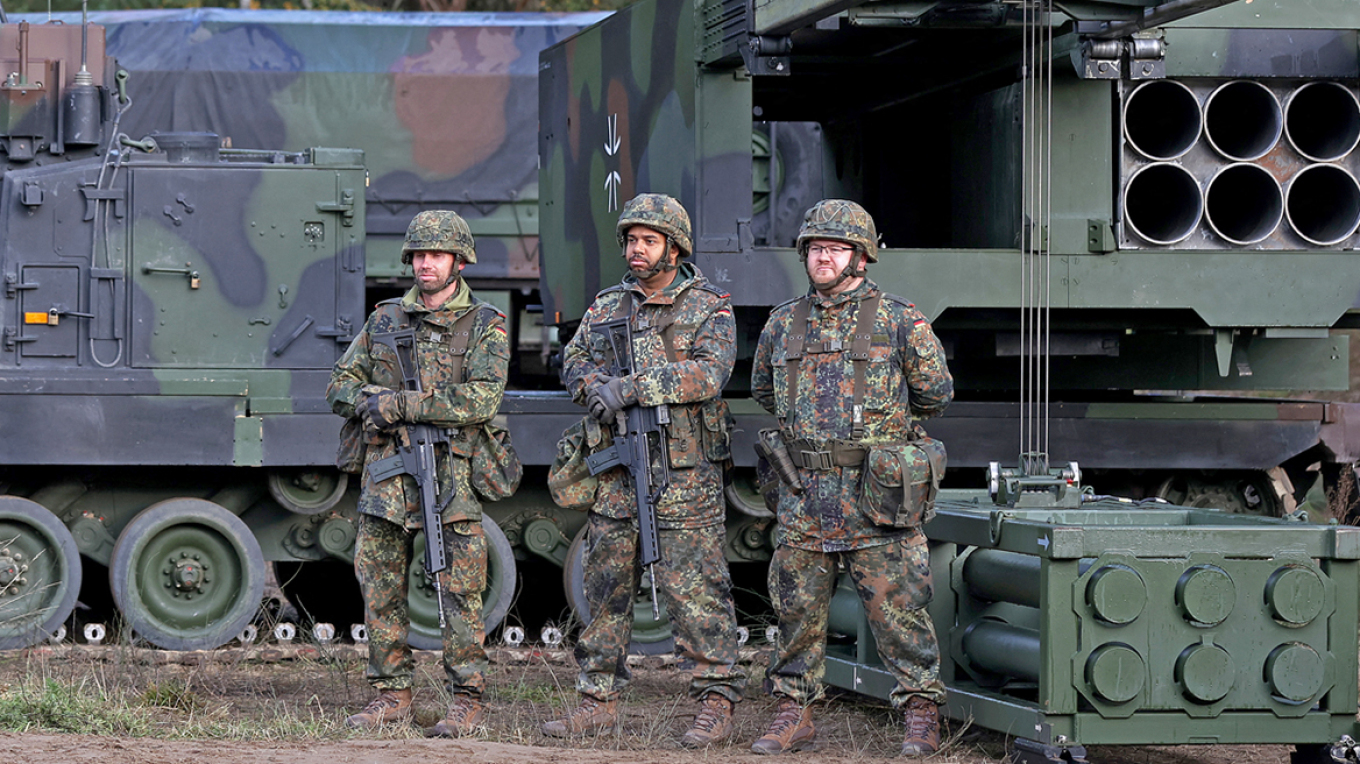The thriller that unfolded in the dramatic hours after the missile strike on the Polish village of Przewodów, and until it was ruled out that it came from Russia, demonstrated to NATO partners that the alliance’s involvement in the war in Ukraine is an entirely realistic possibility.
“Capacity to defend NATO territory”
German publication Spiegel analyses what might happen in the event that such a war becomes de facto inevitable. Spiegel managed to secure a classified German Defence Ministry report outlining the Bundeswehr’s “strategic reorientation” in the face of a possible direct military confrontation with Russia. The report is signed by General Eberhard Zorn, inspector general of the German armed forces, which he prepares for difficult years. The 68-page confidential document bears the somewhat vague title “Operational Instructions for the Armed Forces.” But its content is highly specific. The German general, as early as the end of September, said that the German army must prepare more effectively for a possible military conflict with Russia. “Attacks in Germany can potentially be carried out without warning and possibly with high casualties,” the report said. And at another point in the paper he says: “Undoubtedly, the ability to defend the country and NATO territory will be vital and even more important than before.”
What immediately catches the reader’s attention is the constant repetition of the word “deterrence”. Because a direct conflict on NATO’s eastern flank has “become more likely again”, Germany must play a leading role in Europe and make its armed forces stronger. In this context, according to General Zorn, “the training and operational readiness of the armed forces in a high-intensity (war) scenario is the backbone of deterrence.” In other words, it is no longer enough to send specialised units on specific missions abroad, as has been done until now. On the contrary, for the needs of NATO, numerous military units must be kept in a state of full operational readiness.
Expectations from Germany as a ‘Leading Nation’
And this is where the confidential report comes in with the expression “turning point” used by Chancellor Soltz after the Russian invasion of Ukraine, at the extraordinary session of the Parliament on February 27. “The war in Europe is again a reality”, as General Zorn describes more specifically in the introduction of the report. “Consequently, Germany should be prepared for the fact that in the event of a Russian attack on NATO’s eastern flank, the Bundeswehr would have to provide combat and action-ready forces and not expect support from the US. “What the inspector general of the German armed forces emphatically warns is that neither the EU nor can NATO afford to begin planning and massing forces when a possible attack begins. Zorn also underlines the “primary role that the German military is called upon to play on NATO’s eastern flank in a forced war. Of course, the request to focus the Bundeswehr on national and NATO defense are not completely new. Already after the annexation of Crimea by Russia in 2014, NATO was forced to readjust its plans.
In NATO’s eastern flank the alliance deployed small commando units, something like a first human bulwark, and multiplied military exercises compared to the past. Unlike today, however, almost all NATO generals were confident that Russia would not seek direct confrontation with NATO, and that is the key difference. That belief, when one reads the report, has evaporated. How the German military will evolve in the coming years is a critical issue for its partners. Due to its position and military importance, Germany is considered a “leading nation”, and this also causes some “expectations” on the part of the NATO allies, which translate into “operational readiness”. Another German general put it more clearly. “If we don’t move quickly and equip our army, no other army in Europe will.”
Ask me anything
Explore related questions





